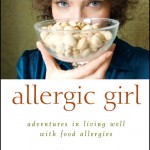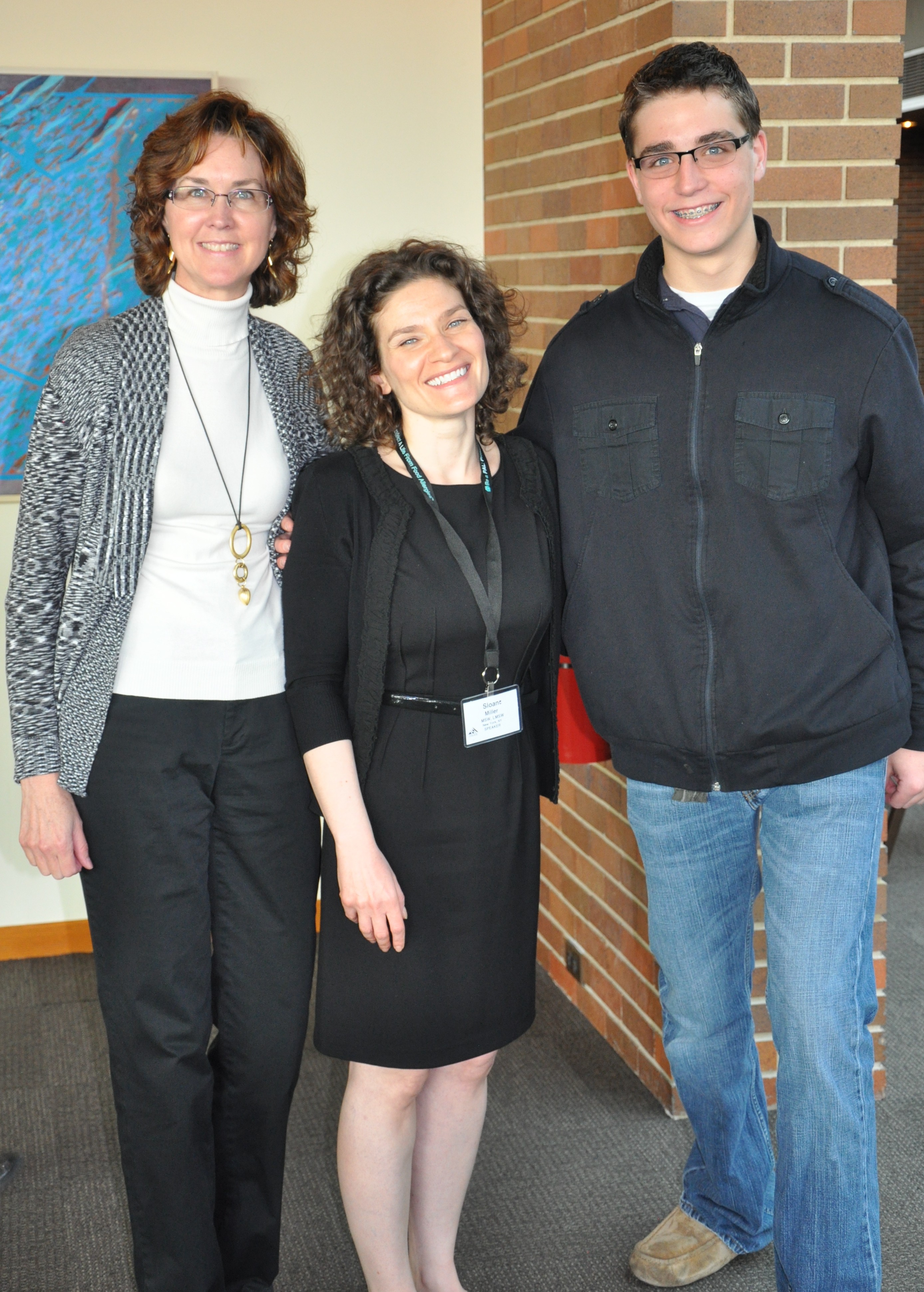
Sloane Miller, food allergy advocate, author and life coach, is founder and President of Allergic Girl Resources, Inc., a consultancy devoted to food allergy awareness. She consults with private clients, the healthcare, food and hospitality industries, government and not-for-profit advocacy organizations. Ms. Miller earned her Master of Social Work at the New York University’s Silver School of Social Work and her Master of Fine Arts in Writing and Literature at Bennington College. In 2006 she started Please Don’t Pass the Nuts, an award-winning blog for and about people affected by food allergies. In 2011, John Wiley & Sons published Ms. Miller’s first book, Allergic Girl: Adventures in Living Well With Food Allergies, the definitive how-to guide. Ms. Miller combines a lifetime of personal experience and passion with professional expertise to connect with people about how to live safely, effectively, and joyously with food allergies. You can find her at www.allergicgirl.com.
Sloane, can you please tell us what food allergies you manage and when you were diagnosed?
I have always been an allergic girl. I have had food allergies since birth and I developed environmental allergies, eczema and asthma in early childhood. I am also a social worker and writer. In 2006, I became “Allergic Girl” and started the award-winning blog, Please Don’t Pass the Nuts, as a way to talk about food allergies. I wanted to share my experience and connect with other people with food allergies; talk about what I was going through dining out, traveling, dating and working and the things I learned.
My work as a food allergy advocate—“Allergic Girl”—combines my commitment to helping people with my personal experience as someone with food allergies and my professional expertise as a social worker and writer.
What is your most recent experience with food allergen-related anaphylaxis? What were the circumstances and what did you learn from the experience?
My most recent anaphylactic experience was in 2009 after kissing a man I had been dating. Earlier that evening, we had gone over my allergens, my anaphylaxis action plan and where I kept my emergency medications. This was prescient. Later that evening, while kissing, I broke out in intense hives and started wheezing. He had eaten cashews earlier that day and, even though he had no proteins in his saliva, he had cashew nut dust in his beard. My reaction to that nut dust was swift and severe, but because we had discussed what we needed to do in an emergency, I were able to take care of the symptoms with his support and without further escalation.
The experience underscored that how vital is it to have and to know your anaphylaxis action plan, to have your emergency medications on hand in all circumstances and to communicate your needs clearly and concisely to others around you so they can support you.
I love your book, “Allergic Girl: Adventures in Living Well with Food Allergies” especially the chapters about dating. What can you suggest to teenage girls and boys about how do you say “No” at that age to a good night kiss from a date who ate your allergen?!
Thank you! No one ever talks about food allergies and dating so I devoted a whole chapter just on that topic.
Truly, the best defense, as they say, is a good offense. Don’t wait and watch while someone you want to kiss eats your allergen then goes in for a big smooch! As difficult as it may be, speak up about what your needs are in a clear and factual way to your potential kissing partner. The last thing they’d want to do is hurt you!
Extra credit homework: It really helps to practice having this conversation. So, enlist a safe friend or parent to practice how to talk to your date about food allergies, your anaphylaxis plan, where your medications are and what you need to smooch safely.
As kids grow, they become involved with activities where the parents are no longer involved. How can parents prepare their teens and preteens for handling food allergies while away from home? Are there some ‘absolutes’ in terms of “You Must Do This…”?
Teaching a child learn self-advocacy skills can never start too early; alternatively it’s also never too late! Ideally, once your child has been diagnosed with food allergies, engage them with age-appropriate advocacy skill sets. For example, n=knowing exactly what their allergens are, how to speak up about their food allergy needs to an appropriate adult, identifying allergens, how to read labels and that you have to do it every time and most essential: knowing their personal anaphylaxis action plan and having access to emergency medications at all times.
As every child is different, go where your child is; for example, a shy child will advocate differently than a bold one.
How can parents prepare a child with food allergies with the steps to take in an ‘emergency’?
Once your child has been diagnosed with food allergies and you receive an anaphylaxis action plan from your board certified allergist, think of it as the beginning of an ongoing process and conversation. Like a fire drill, run through the steps of that anaphylaxis action plan and equally important, engage your child about what an “emergency” means. Explore with your child the possible scenarios, solutions and outcomes as well as their feelings, fears and concerns. With younger children, this conversation can happen with play or through art; with middle school and high school children let them lead you to the emotional place they need to go.
And keep practicing. At different life stages, fears, concerns, worries as well as strengths and accomplishments change. Remember, an anaphylaxis action plan is a live document and what constitutes an emergency is living conversation.
What are the key tools/rules you use to keep yourself safe?
I find for myself, my readers and my coaching clients that the best tool to create a safe environment where ever you are is to take your food allergies seriously and manage risk. What does this mean? See a board-certified allergist. Ask a lot of questions of your allergist so you will fully understand your diagnosis. Fill your prescriptions and always carry them with you; also know your anaphylaxis action plan. Communicate your food allergy needs to those a round you so they can help and support you. And, be patient with yourself. There will be mistakes. Being prepared will help.
Yep, that’s Morgan and Nicole with Sloane, whom we met in Chicago at last year’s FAAN conference in March 2012
Sloane and Morgan hit it off right away. It takes a food “allergic girl” to really understand a food “allergic boy”! They shared stories about managing food allergies in restaurants and school and more. It’s so wonderful for our kids to have great mentors like Sloane.
You’re probably also wondering…just how tall are Morgan and Nicole? Or is Sloane just a tiny little thing?! She is a ball of energy…and a tiny little thing next to the two of us!


One thought on “Food Allergies & Dating with Sloane Miller”
Comments are closed.